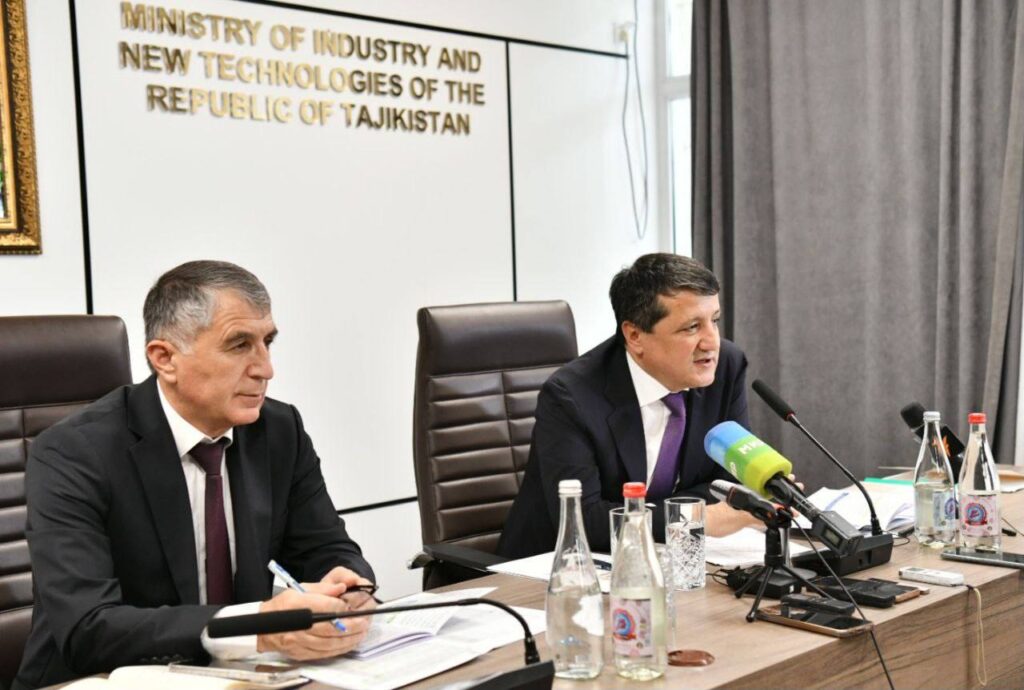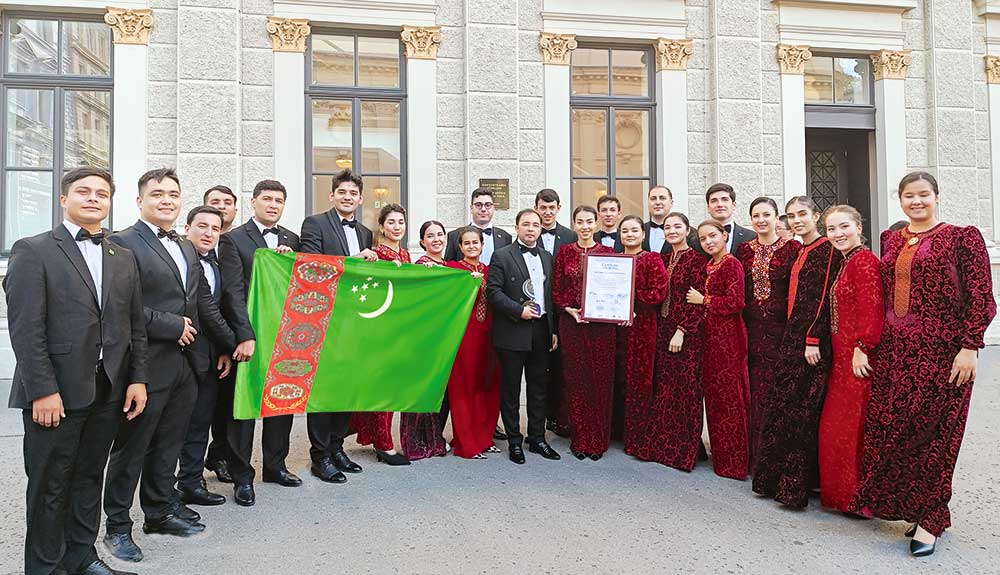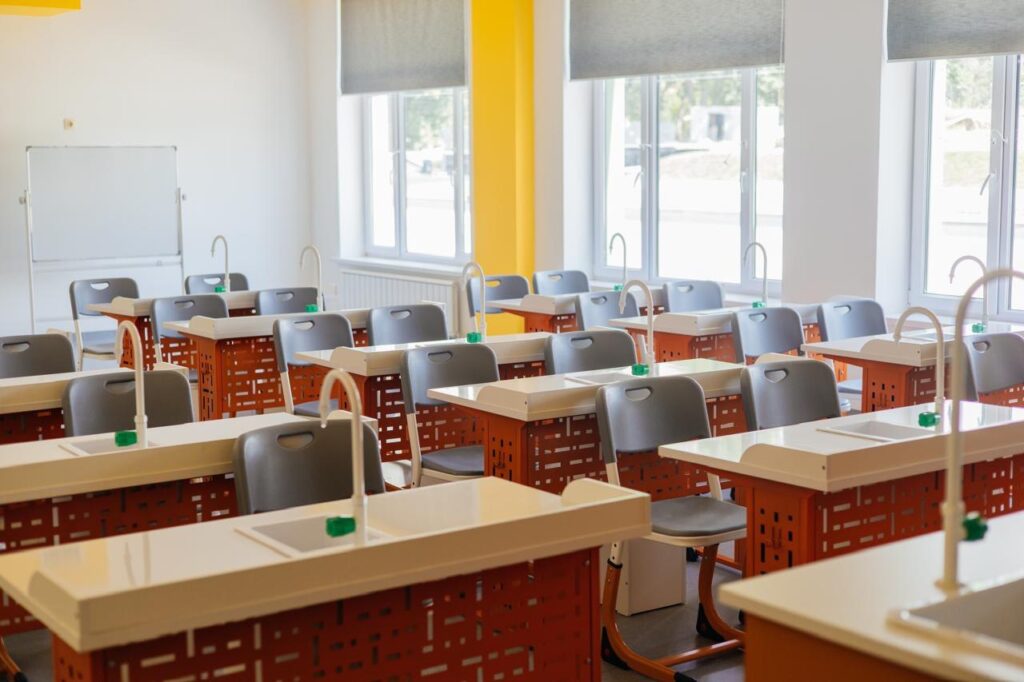Viewing results 1 - 6 of 196
As previously reported by TCA, Tajikistan is the only Central Asian country with a national strategy for the development of AI. In 2022, President Emomali Rahmon signed off a national strategy to achieve 5% of the GDP from developing artificial intelligence by 2040. On August 1, the Minister of Industry and New Technologies of Tajikistan, Sherali Kabir, announced at a press conference that work had begun in securing the first patent for the artificial intelligence algorithm 'zGAN' , developed by the local research laboratory of Tajikistan, and stated: “At a time when two-thirds of the world’s countries have yet to develop their national AI strategies, these steps highlight Tajikistan’s ambition to take a key position in technology and innovation." Referencing Tajikistan's progress in the field, Azizjon Azimi, chairman of the Council on AI under the Ministry of Industry, said more than 300 experts had been trained in artificial intelligence and its applications in the economy were expanding. "The leading case is using 'zGAN' algorithms for credit scoring. More than 30 banks in over ten countries have already implemented this algorithm by the Tajik fintech zypl.ai, which automatically issued loans worth over $200 million. To date, zypl.ai has attracted more than $3 million in private direct investment in the development of AI in Tajikistan." Azimi emphasized that in addition to the impact of 'zGAN' in the economic sphere, plans are in place for its application in agriculture, industry, and healthcare. He also reiterated that an agreement had been signed to develop AI programs for the Emirate of Ras al-Khaimah based on Tajikistan's national AI development strategy.
The Silicon Valley International Invention Festival (SVIIF) was held in Santa Clara, California, United States, from July 26 to 28 this year. According to UzA, Parahat Matyakubova, head of the Tashkent State Technical University, an Uzbek woman scientist, participated for the first time. More than 350 inventors from over 30 countries participated in the SVIIF 2024 festival, exhibiting their inventions and innovative developments in various fields of technology, food, medicine, chemistry, and industry. The Uzbek scientist demonstrated her scientific work and achieved results based on her invention, “Capacitive moisture meter for liquid products and pool materials,” at a competition organized within the festival's framework, wherein Matyakubova was awarded the Inventor Specialist Special Prize and a gold medal in the SVIIF-2024 Finals category. The scientist received this award for her patent on a device for controlling the moisture content of grain products and solid dispersion materials. It was reported that the results of the invention were introduced to enterprises processing grain products, and a high level of economic efficiency was achieved due to the expansion of functional capabilities.
The Chinese company ECOMOTO has announced plans to become a joint producer of electric scooters in the Yangiyul district of Uzbekistan. A memorandum was signed at a meeting between Odiljon Ataullayev, hokim of Yangiyul district and investors whereby the project will be funded by direct foreign investment of 10 million dollars and create 50 jobs. The production of modern, competitively-priced electric scooters is expected to begin in the second quarter of 2025. A metal construction plant, built by the Chinese company Da Fu which recently started operating near Yangiyul, will produce up to 500 tons of products per year.
Turkmen musicians have participated for the first time in the X World Festival of Orchestras, “One Future,” which was held from July 25 to 28 in Vienna. Therein, they secured the Gold Prize in the Chamber Orchestra category. The Youth Chamber Orchestra, directed by Rasul Klychev, captivated the audience and jury with its masterful performance of Turkmen melodies and classic foreign pieces. At the festival's closing ceremony, held in the famous Golden Hall of the Vienna Philharmonic, the Turkmen musicians received the jury's highest score — forty points. British conductor Toby Purcer, head of the festival's creative committee, stated that he highly appreciated the orchestra's performance and hoped to organize joint concerts in Turkmenistan in the future.
As part of the nationwide project 'Comfortable School', Kazakhstan is to build 369 new secondary schools, with accommodation for 740,000 pupils, by 2026. According to a press release issued by the government, the new schools will have separate blocks for elementary and high school students, technology for teaching contemporary subjects, and specially equipped classrooms to ensure both the safety of pupils and a barrier-free environment for children with special educational needs. Regarding construction, priority will be given to local manufacturers with a aim to use 70% of Kazakh-made materials, including 90% for the actual build. All of the schools' furniture will be made in Kazakhstan. The first schools are expected to open ahead of schedule with 21 to be launched this August, 18 in September, 58 in October, and a further 112 by the end of the year.
The Global Center on AI Governance has published a report titled “Results of the Global Index on Responsible AI in Eastern Europe and Central Asia.” Among Central Asian countries, Uzbekistan has been judged to use artificial intelligence in the most responsible way. Recent AI initiatives in Uzbekistan cover fields including cultural and linguistic diversity, international cooperation, public sector skills development, and transparency. Kazakhstan ranks second in the region. Among Central Asian countries, Kazakhstan ranks first for the number of government initiatives related to responsible AI. Kyrgyzstan ranks third in the region, demonstrating significant non-governmental sector participation in responsible AI. However, the need for a comprehensive government system affects its overall outcome. The report states that the country has received a high rating for responsible AI governance, second only to Uzbekistan in the region. However, due to the scarcity of government frameworks, which, along with government initiatives, had the most weight in the index score, Kyrgyzstan scored lower in the Responsible AI Index. Tajikistan is the only Central Asian country with an AI national strategy aimed at development until 2040. It ranks fourth in the region. However, this strategy covers only 5 out of 19 thematic directions. Tajikistan's scores are relatively high regarding responsible AI governance; however, the country has the most passive non-state sector among the pillars assessed. Turkmenistan has the lowest indicator in the region. Government structures related to the responsible use of artificial intelligence have not been identified in the country.






